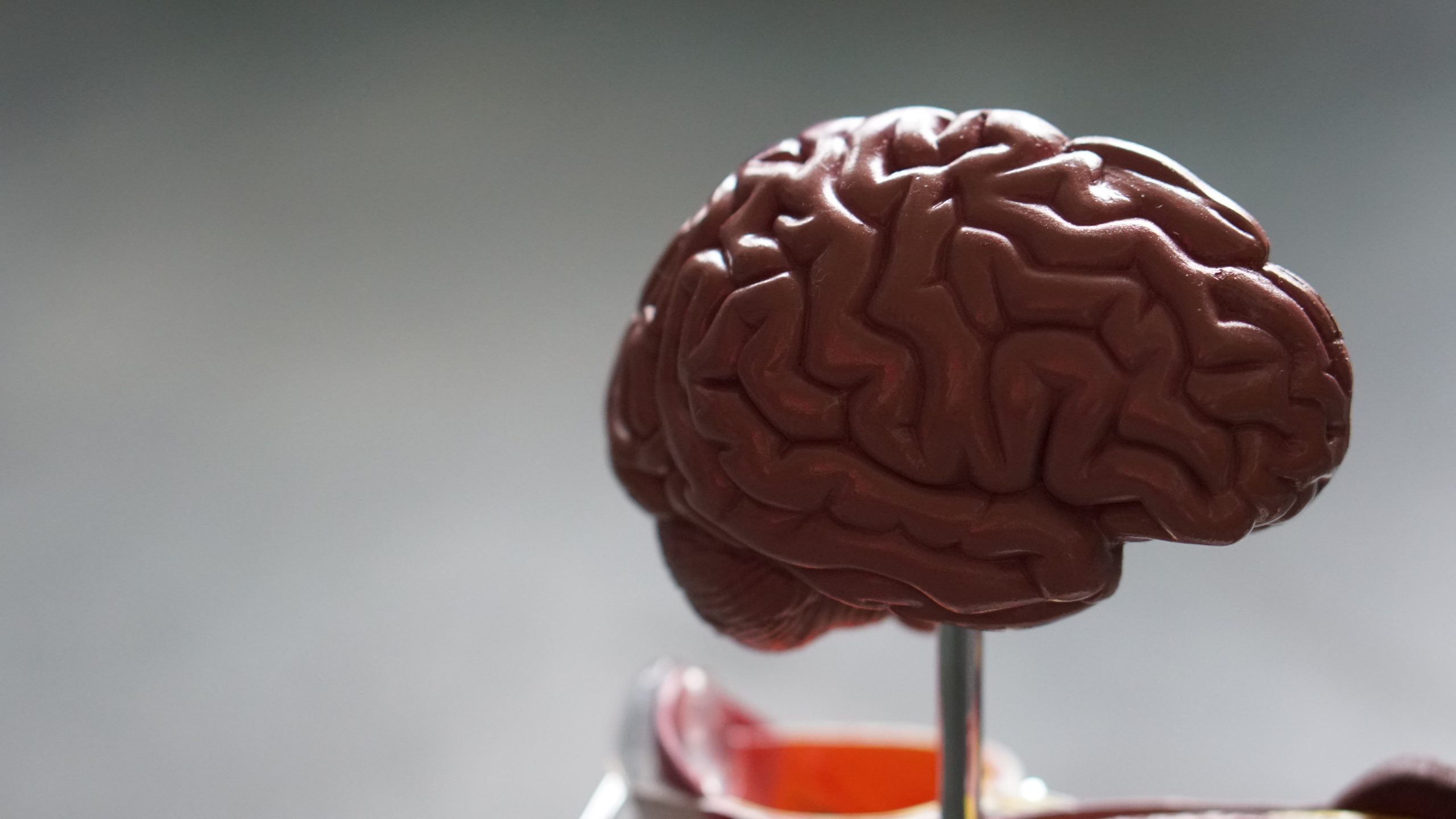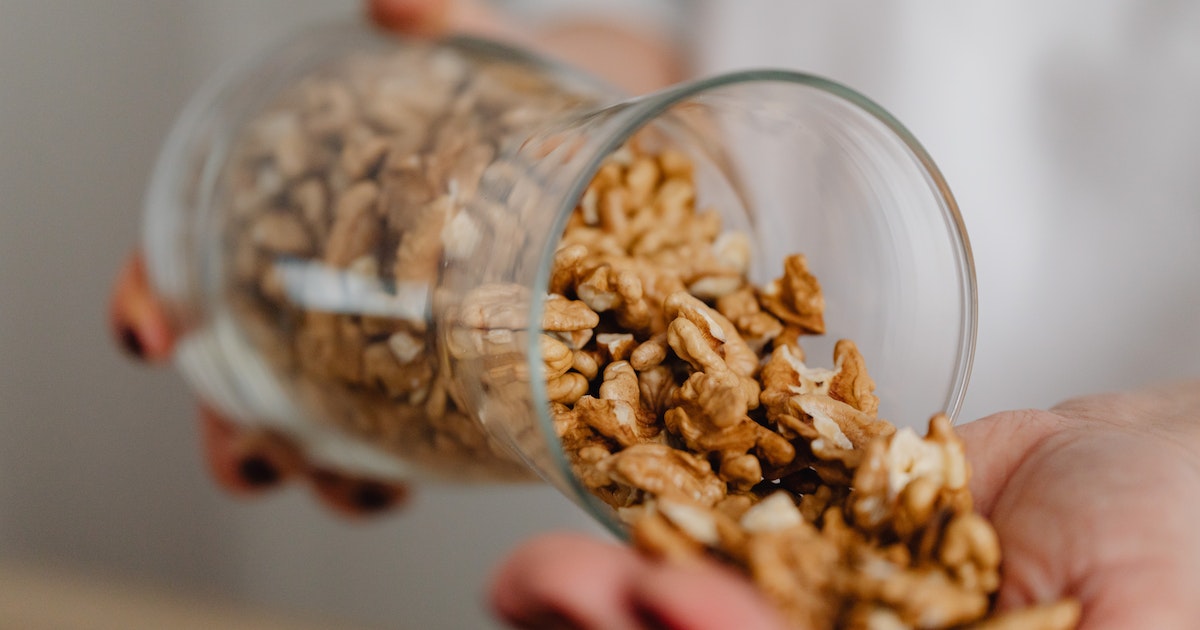Go to work

Retirement is a life event that many people eagerly look forward to, but if you choose to step back from employment, it’s worth also taking steps to prioritize your brain health and mental agility. This is because studies have consistently shown a link between retirement and cognitive decline. After retiring, it may be worth spending some time freelancing or volunteering to keep your mind sharp and engaged.
Drink in moderation

According to the Alzheimer’s Association, drinking alcohol too regularly or in too high quantities can result in an increased risk of dementia. A 2022 study found that alcohol consumption above seven units per week was associated with high levels of iron in the brain, which in turn correlates with diminished cognitive function. So next time you go out to celebrate, make sure to drink responsibly.
Stay sociable

One of the best ways to keep your brain healthy and active in later life is to make time to see friends and family. Having an active social life is associated with better cognitive outcomes in areas like memory, not to mention better mental health. So whether it’s a walk in the park with the grandkids or dinner with pals, making time for community is hugely beneficial.
Eat like you’re in the Mediterranean

The Mediterranean diet consists of primarily vegetables, with a smattering of healthy fats like olive oil, and omega-3 fatty acid-rich foods like fish. This way of eating, when combined with lots of walking and low stress, is associated with better health outcomes across the board. Not only do people who eat this way often live longer, but they also have better mental agility in later life.
Read for fun

Reading for work is one thing, but if you want to unlock all the mental benefits of the printed page, you have to read for enjoyment too. Studies have shown a link between avid readers and low instances of dementia in later life, and reading has also been shown to boost social intelligence and memory, while lowering a person’s chance of developing brain lesions and tangles.
Keep an eye on your cholesterol

When you think of the impacts that high cholesterol has on your body, diminished brain health and function might not be the first place your mind goes. Nevertheless, high cholesterol and high blood pressure have both been known to increase the risk of heart disease and strokes, which in turn have been known to contribute to the development of conditions like dementia and severe memory loss.
Embrace new technology

Acquiring any kind of new skill in later life is good for your brain, but some may yield more mental benefits than others. Specifically, a 2021 meta-analysis of multiple studies showed that those who adapted to and began to use new technologies like smartphones and laptops were able to stave off or delay the negative cognitive changes associated with ageing.
Play brain games

Studies have been inconclusive as to whether playing phone games specifically targeted towards improving memory, reflexes and mental agility have been effective in decreasing instances of dementia or Alzheimer’s. However, spending time gaming more widely, whether that means brain training apps, video games or chess, has been shown to yield positive mental outcomes across the board, including improving the mental health of players.
Stay active in the bedroom

It’s often assumed that people’s romantic lives slow down in later life but, if the studies are anything to go by, this really shouldn’t be the case! A 2017 research paper centered on 50- to 83-year-olds concluded that those who experienced physical intimacy of the bedroom variety on a weekly basis had improved cognitive function over those who didn’t.
Learn an instrument

Learning an instrument as a child has been linked to improved cognitive function in old age but, if you never had the chance to get into music as a kid, it’s not too late! One study of people over 60 showed that learning the piano was associated with improved episodic memory and attention, even in those who had only been learning the skill for six weeks. So get learning!
Adopt some healthy habits

According to a study by the UCLA, non-smoking adults who consumed five servings of fruit and veg in the last week, exercised regularly and ate healthily the day before the test were a whopping 111% less likely to have memory problems. If that’s too virtuous, just choose one. Even adopting one of these healthier habits saw a 21% improvement in memory.
Stretch that power nap out

It’s well known that a short power nap in the afternoon can be beneficial. However, if possible, go for an hour and a half. A study by the University of California, Berkeley, found that a decent 90-minute siesta allows your brain to enter REM sleep, which means clearing out short-term memories, and makes space for fresh new learning. Sweet dreams!
Give yourself a pop quiz

Fancy giving your memory a little workout? Stretching and exercising those mental muscles? well, next time you head out to get groceries, try to recall your entire list without looking (obviously it helps to remember your list in the first place). It’s true what they say – use it or lose it!
Get your heart rate up for only three hours a week

A study published in Frontiers in Aging Neuroscience found that an hour of aerobic exercise three days a week brought significant improvements. Specifically, beneficial changes in logical memory, immediate and delayed memory tests, and resting cerebral blood flow. The improvements will take about six weeks to kick in, but it’s not a lot to ask. Just elevate that heart rate!
Spread your study session

Remember those school days when you’d cram like crazy the night before a test? Try this for a work presentation, or an important speech. Spend an hour a day studying your material for a week or so ahead of the occasion. It will mean you’re more likely to recall the information as you have more layers of memorized material from several sessions of study.
Stimulate your mind with fresh-brewed coffee

For coffee fans, this one is a double winner! Findings from the Kyorin University School of Medicine in Japan show that the scent of coffee brewing is one of the most stimulating for your brain. Furthermore, a study in France found that woman over 65 who drank more than three 5-ounce cups a day were 33% less likely to suffer a decline in verbal fluency than those who didn’t. Maybe best enjoyed in the morning, though.
Get searching the web

When you search the internet, key centers of your brain that control complex reasoning and decision-making are engaged. A study by UCLA even found that regular searches of the web generated three times more brain activity than for those searching for the first time. What a thought – building your brain power just from looking up old quotes from Friends!
Eat with your buddies or loved ones

There are plenty of ways to enjoy the company of others, but what’s more sociable than sharing a meal together? A 2008 study by John Hopkins University found that regular social interaction was one of the most protective factors of the brain. So to keep your mind sharp as a tack, sit down with your loved ones at meal times.
Dial down the screen time

We all like a bit of TV or scrolling on our phones … but a study published in Brain and Cognition said that every hour spent in front of a screen between the age of 40 and 59 increases the risk of dementia by 1.3%. Try reading a magazine or phoning a friend instead (but no video calls – no screens, remember).
Make a mental association

Keep forgetting that multi-vitamin in the morning? Making mental associations between actions is a great way to keep your mind sharp and your to-do list short. For example, when you do your hair each day, say out loud “Time I took my multivitamin.” That spoken reminder will soon become habit via a red flag to your memory.
Watch those blood sugar levels

Do your brain a favor and put back that extra cookie. According to a study by Group Health and the University of Washington, people who had higher blood sugar levels also had a greater risk of dementia. Furthermore, the journal Neurology published a study that found higher blood sugar levels can also harm your memory.
Switch off your GPS for morning errands

Granted, GPS is great when you’re headed somewhere new, or trying to dodge the worst of the traffic, but if you use it every time, even routes you know like the back of your hand, you’re doing your mind a disservice. Relying on GPS means you’re not using the parts of your brain involved in spatial navigation, memory and orientation. Try going GPS-free in the morning – brain stimulation is best at 9am.
Maintain your brain like the rest of you

We don’t tend to think of our brains as organs like we do the heart, liver and lungs, for example. But you need to care for it like any other part of you. If you keep it fresh, challenge your mind and keep on learning, you’ll give your memory, recall, cognition and problem-solving skills a better chance throughout your life.
Chow down on some walnuts

For lovers of walnuts, here’s an easy way to help your mind stay sharp. A study published in the Journal of Alzheimer’s Disease found that eating walnuts (as part of a healthy, Mediterranean-inspired diet) was linked to better memory and brain function. It’s thought that the antioxidants in walnuts help offset age-related cognitive decline. No wonder those tasty nuts look like little brains.
Get a grip – no, really

Yep, you read that right – get a grip in the actual sense. Research published in the journal PLOS ONE showed that clenching your fists could strengthen your memory now AND improve your recall later. How does that work? The study found that clenching your right hand activates the left hemisphere, specifically the part responsible for memory formation, with the opposite true for right-hemisphere recall function. If only Arnie had known that in Total Recall!
Mix up the Sunday brain games

Fed up of Sudoku or the Sunday crossword? If you’re looking to keep your mind razor sharp, find a fun new hobby, such as photography, quilting, travel in a foreign country or playing a musical instrument. A study in Psychological Science showed that learning new, active skills were more effective than puzzles for continuous activation of cognitive functions like long-term memory. You can still do the odd Sudoku though!
Learn a second language – then use it

In this multicultural world, you don’t have to go far to find somewhere to practice a second language. The benefits are more than just ordering a coffee on holiday – research published in The Journal of Neuroscience showed that bi- or multi-lingual people were faster at switching between tasks than those who only spoke one language. It’s thought that the sustained brain stimulation enables better cognitive performance.
Eat a rainbow for lunch (or dinner)

It’s said that you should eat a rainbow in a day. A study from the Journal of Nutrition found that luteolin, a nutrient in carrots, celery and green bell peppers amongst other foods, may help reduce the risk of dementia. You might not be keen on vegetables … in which case, add olive oil to your pasta, or try peppermint or chamomile tea. All rich in luteolin.
Cut back on the booze

Alcohol can be vilified online and in the media, but you don’t have to abstain altogether. Having said that, do try to limit it to one or two drinks, whenever possible. That’s because a study from Wellesley College found a link between alcohol consumption and reduced brain volume, especially in smaller people. Less is more has never been more true.
Binge on blueberries

Blueberries have often been lauded as a superfood, and there may well be something in that for your mental prowess. Research has shown that eating blueberries boosted navigation skills and increased cell growth in the hippocampus (part of your brain that’s key in memory consolidation). Frozen blueberries are just as delicious and nutritious as fresh ones – add a handful to your morning cereal or take some for a snack.
Take a moment to meditate

Meditation doesn’t have to mean cross-legged humming on a yoga mat. It simply requires you to sit comfortably and focus on your breathing for a short period of time. In fact, a study in Neuroscience Letters found that fifteen to thirty minutes of daily meditation, as described, can slow the progress of dementia in adults from 55 to 90. Those who meditate regularly have more hippocampal grey matter – the part of the brain that normally degrades during Alzheimer’s. Worth a go, then.
Check your iron intake

The level of iron in your blood is a key factor in a number of things, and there is plenty known about the benefits of a good iron level (and conversely, the impact of poor levels). Your brain can be sensitive to low levels of iron, because iron keeps the neurotransmitters functioning – including those involved in memory. A study published in Neuroscience found that full anemia can up the risk of Alzheimer’s by a hue 60%. Time to up your spinach.
Try some black cumin

You may not have heard of black cumin, although many will know of cumin as a traditional ingredient in many spiced dishes. Black cumin may be a good supplement to aid your brain power (check with your doctor first). A study published in the Journal of Ethnopharmacology saw those who took 500mg tablets of ground black cumin perform notably better in tests of cognition, attention and memory than those who didn’t, after taking it each night for nine weeks.
Maintain a healthy sex life

Enjoy a surge of dopamine in the bedroom – with or without a partner. Dopamine is released during sex and there is a huge surge of it – along with oxytocin, and it is this that affects proteins in the hippocampus, helping to restore faded memories. What better reason to reward yourself and/or your partner with some quality private time.
Increase fish in your diet

Those of us who eat fish on a weekly basis (yum) have a tasty 60% lower risk of developing Alzheimer’s, it is said. Who by? Martha Clare Morris, ScD, associate professor of internal medicine at Rush University Medical Center in Chicago. Who are we to argue? A weekly fish dinner with the added benefit of keeping our brains healthy and happy? Sign us up.
Volunteer to help kids learn to read

Even if you’re not a keen reader (and not everyone is), there is a way you can read regularly while benefiting someone else as well as yourself. Find an organization that helps children learn to read. The benefits of reading are known for good brain health, and you’re not just helping your brain – you’ll be helping a kid’s brain development. That’s a win-win in anybody’s book.
Don’t be a smoker

The more we learn about smoking, the more we realize that there’s nothing good about it. Absolutely nothing. So it stands to reason that smoking is as bad for your brain and your cognizance as it is for your body. Even cutting down is better than nothing, although the goal has to be a total non-smoker. It’s been found that smokers have a thinner cerebral cortex, which shows that smoking actively destroys your grey matter. That’s no laughing matter.
Listen to music

It sounds straightforward, and in some ways, it is. Pop a tune on and enjoy. Of course, to get the most for your mind, you should listen to something new that your brain has to concentrate on. The other option is to listen to music that takes you back to a previous time in your life. Both are known to help keep your mind active – and you might find something new and exciting, or be reminded of something you’ve not heard in years. Happy listening!
Get enough quality sleep

Obvious as it sounds (yep, really obvious), this one is pivotal. A good eight hours each night is such a basic need for adults, and when we don’t get it, or it’s interrupted, we get cranky. It also affects our memory and attention span, which is not the right way to treat your brain. To stay sharp, get your routine down and get that shuteye in.
Have a purpose

For many of us, getting to the point where you can retire or cut back your working hours is the goal for later life. As nice as that sounds, we need to be needed. Having a sense of purpose has been shown to keep your mind sharp. A study published in the International Journal of Geriatric Psychiatry found that the risk of dementia fell by 30% when people had something to strive for or a goal they were working towards. Up and at ’em.